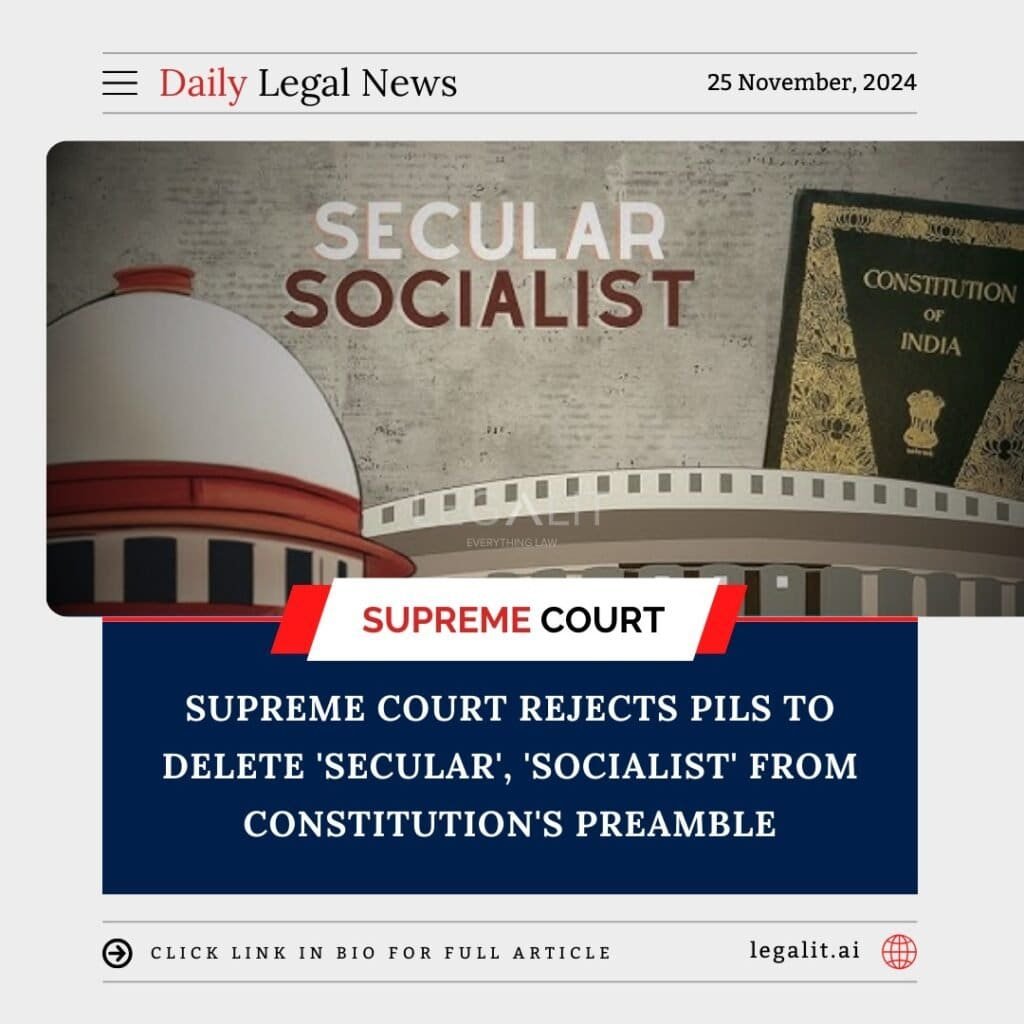
In a landmark judgment, the Supreme Court of India has rejected public interest litigations (PILs) seeking the removal of the words “secular” and “socialist” from the Preamble of the Indian Constitution. The petitioners argued that these terms were not relevant to the current socio-political environment and should be discarded. However, the Court dismissed the petitions, affirming the importance of these principles in India’s constitutional framework.
Background:
The PILs were filed by individuals and organizations who contended that the terms “secular” and “socialist” were added to the Preamble by the 42nd Amendment in 1976 and were not integral to the original vision of the Constitution. They argued that these terms had become politically controversial and no longer reflected the true ethos of the nation. The petitioners suggested that their removal would better align the Constitution with the prevailing political and social realities of India.
Court’s Rationale:
The Supreme Court, in its ruling, emphasized that the Preamble of the Constitution reflects the core values and guiding principles of the nation. It is not a mere ornamental statement, but an expression of the ideals that the Constitution seeks to uphold. The Court reiterated that “secularism” and “socialism” are fundamental aspects of the Indian Constitution and are enshrined as part of the country’s ethos and values.
The Court also pointed out that these words reflect the nation’s commitment to justice, equality, and pluralism, ensuring that all citizens, irrespective of their religion, have equal rights and opportunities. The rejection of the PILs reinforces the idea that constitutional amendments made through a democratic process should not be undermined unless there is a compelling legal basis to do so.
Existing Measures:
The inclusion of “secular” and “socialist” in the Preamble has been a subject of significant legal discourse, and the terms have been consistently upheld by the judiciary as being central to India’s constitutional vision. Previous judgments, including the Kesavananda Bharati case, have emphasized the importance of these terms, underlining that they are part of the basic structure of the Constitution, which cannot be altered by mere legislative amendments.
Conclusion:
The Supreme Court’s rejection of the PILs serves as a strong reaffirmation of the values of secularism and socialism in India’s constitutional framework. The decision underscores the importance of maintaining these principles as vital components of the nation’s identity and governance. By dismissing the petitions, the Court has ensured that these foundational terms continue to guide India’s democratic and inclusive aspirations.